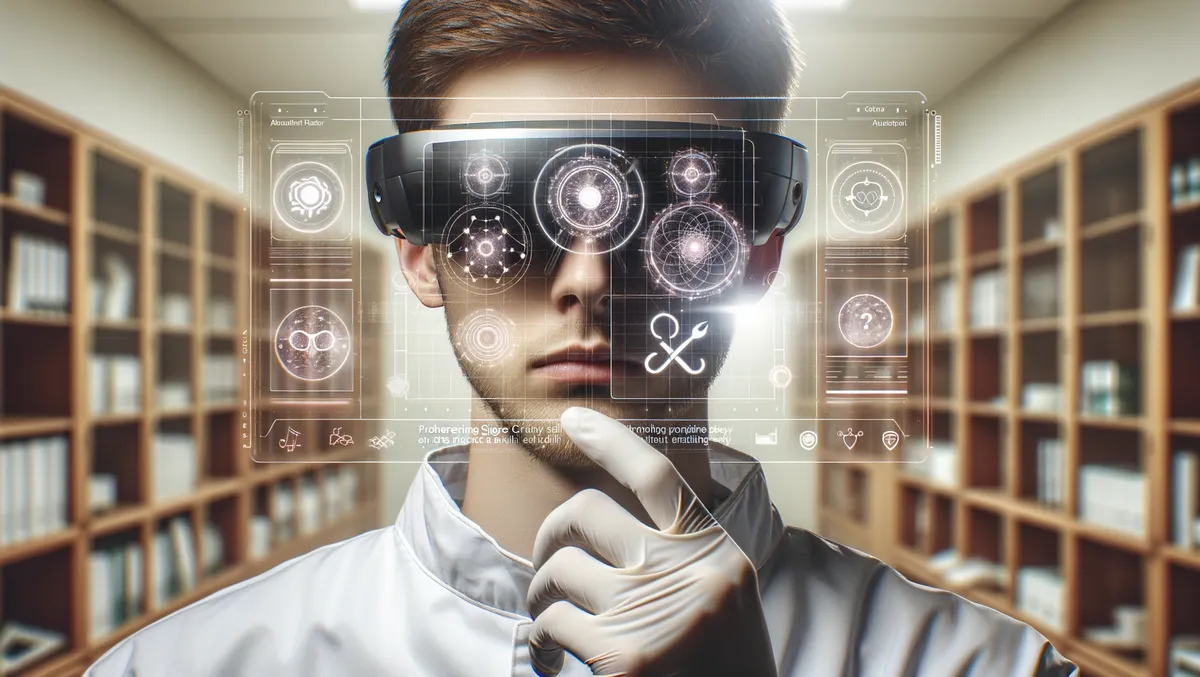
OMNIVISION unveils breakthrough chip for next-gen smart glasses
OMNIVISION, an eminent global developer of semiconductor solutions, has unveiled a revolutionary single-chip LCOS (Liquid Crystal on Silicon) panel, the new OP03050, for next-generation smart AR/XR/MR glasses. The announcement came during the CES 2024 event. As a compact, low-power liquid crystal on silicon, the OP03050 comprises an integrated LCOS array, driving circuit, framebuffer, and interface in a single chip. It offers immersive, high-resolution visuals for real-time video conferencing and streaming.
The new OP03050 LCOS panel has significant potential for both consumer and business-to-business (B2B) applications. It displays high-resolution content, providing a downright immersive experience, much to the advantage of the medical, engineering, and aerospace fields. The innovative technology behind the panel is aimed at catering to the growing demand for smart glasses amongst consumers and industries alike.
Devang Patel, Marketing Director for the IoT and emerging segment at OMNIVISION, shed light on the importance of smart eyewear in the current times. "Smart eyewear is the next mobile phone accessory consumers want, especially as they become more fashionable, smaller and lightweight," said Patel.
He further emphasised that the OP03050's superior pixel pitch enhances image quality and offers a highly immersive viewing experience. According to Patel, while initially driven by consumer demand for smart glasses, its immersive features make it equally valuable for B2B applications, particularly in the medical, engineering, and aerospace fields.
"The high pixel pitch of the OP03050 results in better image quality and a more immersive viewing experience for the user. In fact, while the consumer market is a driving force behind the growing demand for smart glasses, the more immersive experience makes them useful for B2B applications as well, such as in the medical, engineering and aerospace fields," said Patel.
Regarding the technicalities of the OP03050 LCOS panel, it has a pixel pitch of 3.0-micron and flaunts a 1560x1200 display resolution at 120 Hz with low latency. It comes in a 0.23-inch optical format in a small FPCA package and supports a 4-channel MIPI-DSI interface. As per the disclaimer in the press release, samples of the model are currently available for garnering insights, with mass production due to roll out in the second half of 2024.
Globally, the advent of smart eyewear is transforming the user experience and utility value of smart devices. Each development adds a feather to the cap of the fast-evolving technology space. From being previously associated with smartphones and televisions, high-resolution display technology, like that brought about by the LCOS panel, is now reaching wearable devices.
OMNIVISION is a global fabless semiconductor organisation that develops advanced digital imaging, analogue, touch and display solutions for multiple applications and industries, including mobile phones, security and surveillance, automotive, computing, medical, and emerging applications. Its award-winning innovative technologies enable a smoother human/machine interface in many commercial devices.
By delivering rich, immersive outputs, companies like OMNIVISION are broadening the horizons, paving the way for utilising such innovation in diverse applications across various industries.


